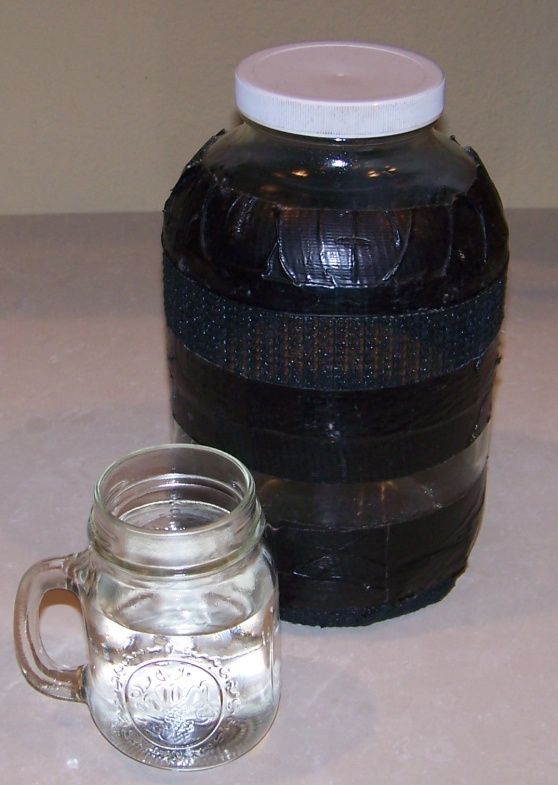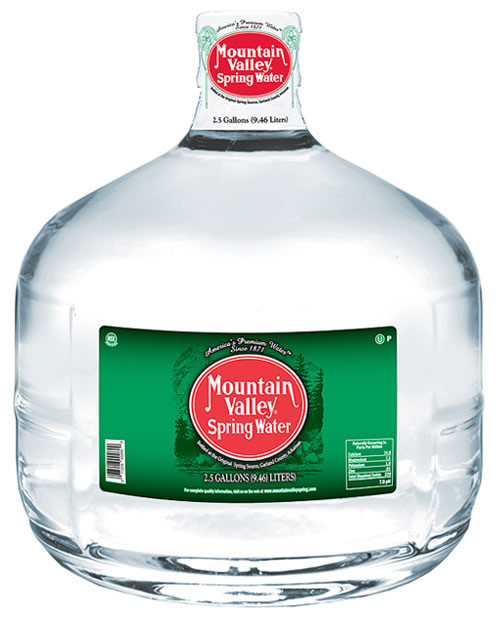Quality, think about quality. This is a topic I will be addressing later in much more depth, but let's start with water quality. Is all water the same? Definitely not.
My friend who lives in the state of Washington has excellent quality tap water that comes from natural springs and wells. She can drink her tap water! The rest of us should look for a better water source. Typically, tap water is highly processed and contains a number of pollutants. The most recent findings in our tap water during the past five years is that tap water contains pharmaceuticals.
My friend who lives in the state of Washington has excellent quality tap water that comes from natural springs and wells. She can drink her tap water! The rest of us should look for a better water source. Typically, tap water is highly processed and contains a number of pollutants. The most recent findings in our tap water during the past five years is that tap water contains pharmaceuticals.
The following is a list of better options. The most popular option, water in plastic bottles or containers, I do not recommend. See the glass not plastic post.
1. Carbon filters - these are the filters that come with your refrigerator and are used by PUR and Britta systems that mount on your kitchen faucet. If you are drinking filtered water from your refrigerator, be sure to fill a glass pitcher or bottle the night before so that the water is room temperature when you are ready to drink it.
Pros - relatively inexpensive and water available when needed
Cons - filters out the least amount of pollutants and if you don't change them regularly, you might be dumping pollutants into your water from the spent filter
2. Reverse Osmosis - home system that mounts under your kitchen sink. I am in the process of remodeling my kitchen and I have chosen this option. My husband just installed an RO water system for us this week. We have been drinking RO water from the store up to this point.
Pros - one of the best quality water options available, very convenient, and water available when needed
Cons - $300 to $400 initial investment, high replacement filter cost, and wastes a lot of water while being processed
3. Reverse Osmosis (or Deionized) - commercial units at stores
Pros - one of the best quality water options available, inexpensive, and available at many stores
Cons - less convenient since bottles must be filled and brought home
In 2008, a study about plasticizers leaching from plastic bottles and a study about small amounts of pharmaceuticals showing up in tap water all over the U.S. were released. I emailed PUR who said their filters were probably not filtering these drugs out. We were drinking water stored in plastic jugs when traveling and PUR filtered water at home.
Thus I decided it was time for a change. We would drink only reverse osmosis water from glass containers. This presented somewhat of a problem on our homeschool trips in our little RV. We took with us plastic one gallon containers which we refilled with RO water at grocery stores.
The solution I found for our trips worked quite well. In fact, it worked so well that I continued when we got home. I purchased eight glass one-gallon bottles, and filled them at grocery stores with RO water. I found nice wide mouth bottles on-line from uline.
These jars are small, manageable, and very reasonably priced (about $3.50 each). After we finished our traveling, I have continued to use these bottles exclusively for our drinking water at home until now. The bottle in the photo above is about five years old. I bought thin black shelf-liner and black duct tape and wrapped the bottle (as shown) to prevent the bottles from clinging together and breaking. It has worked very well.
Another option is to get a 2.5-gallon glass water bottle of Mountain Valley Spring water. A bit heavier but still manageable. However, last time I checked, the deposit on the bottles was $20 (though a one time investment). Mountain Valley also has 5-gallon glass water bottles but I don't recommend them. They are too heavy even for a strong person.
4. Home Delivery in glass bottles - Mountain Valley Spring water in glass bottles is also available for home delivery.
Pros - good quality natural water
Cons - very expensive, and if getting the 5-gallon bottle, very hard to manage



Hi there!
ReplyDeleteI think the options you presented are great, however, I think you may have missed the very best option: distillation. Distillation is when you boil water into steam and then cool the vapor back to water. Distillation is the best method because it removes the WATER from the all the contaminants instead of trying to pin-point and remove all the contaminants from the water, which could included, pathogens (bacteria, parasites, viruses), chemicals (fluoride, chloride, chloramine, chloride etc.), heavy metals (mercury, iron, copper, zinc, manganese etc), sediments (dirt, soil, particles) and the list goes. on. The only thing distillation may not remove is Volatile Organic Compounds (VOCs). These are things like petrochemical products like benzene, several of which have a boiling point close to water and might evaporate with it and be collected with it. You can simply run distilled water through a carbon filter to remove those VOC's to have the closet thing to absolutely PURE water out there. Distillation is also much cheaper than all of the options listed above and can work with fire or electricity. For more info: read this: www.ecclesia.org/truth/water.html